- Details
- Category: Senator Robert Peters News
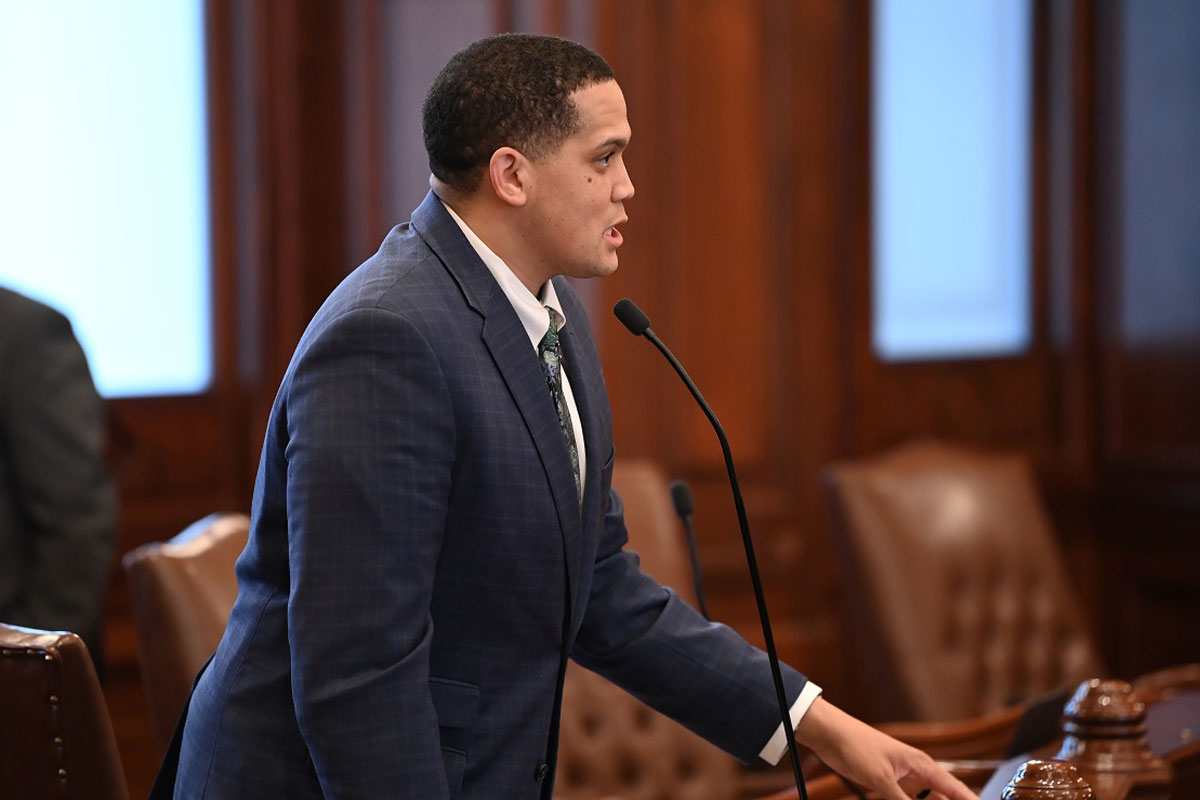 SPRINGFIELD — Illinois patients and health care workers could soon see a fairer, more effective oversight system for nurse agencies, thanks to a measure led by State Senator Robert Peters.
SPRINGFIELD — Illinois patients and health care workers could soon see a fairer, more effective oversight system for nurse agencies, thanks to a measure led by State Senator Robert Peters.
“This isn’t just about fairness – it’s about common sense,” said Peters (D-Chicago). “This measure will help us focus enforcement where it’s truly needed, making our health care system safer and more effective for everyone.”
The Nursing Agency Licensing Act sets guidelines to ensure nurse agencies meet certain operational standards and holds them responsible for the actions of the nurses they dispatch to health care facilities. Currently, Illinois law imposes a flat $10,000 fine for every violation of NALA, only targeting licensees or applicants. These guidelines do not account for the severity of the violation, meaning minor mistakes can result in the same financial punishment as more serious issues.
- Details
- Category: Senator Robert Peters News
 CHICAGO — In October of 2024, Walgreens announced it would close roughly 1,200 locations over the next three years – including 500 closures in fiscal year 2025 alone – causing concern for those who frequent the stores for groceries and prescriptions. In response to learning that three of these closures will happen in their districts, State Senator Robert Peters, State Representative Kam Buckner, State Representative Curtis J. Tarver and Aldermen Lamont Robinson, Desmon Yancy and Peter Chico released the following statement:
CHICAGO — In October of 2024, Walgreens announced it would close roughly 1,200 locations over the next three years – including 500 closures in fiscal year 2025 alone – causing concern for those who frequent the stores for groceries and prescriptions. In response to learning that three of these closures will happen in their districts, State Senator Robert Peters, State Representative Kam Buckner, State Representative Curtis J. Tarver and Aldermen Lamont Robinson, Desmon Yancy and Peter Chico released the following statement:
“The closures at our South Commercial Avenue, South King Drive and South Jeffrey Boulevard Walgreens locations will be a devastating blow to our communities. Walgreens started in or near our districts in South Side Chicago at Cottage Grove and Bowen Avenue 124 years ago. For years, these stores have supported residents, providing access to medications, groceries and other essential services.
- Details
- Category: Senator Robert Peters News
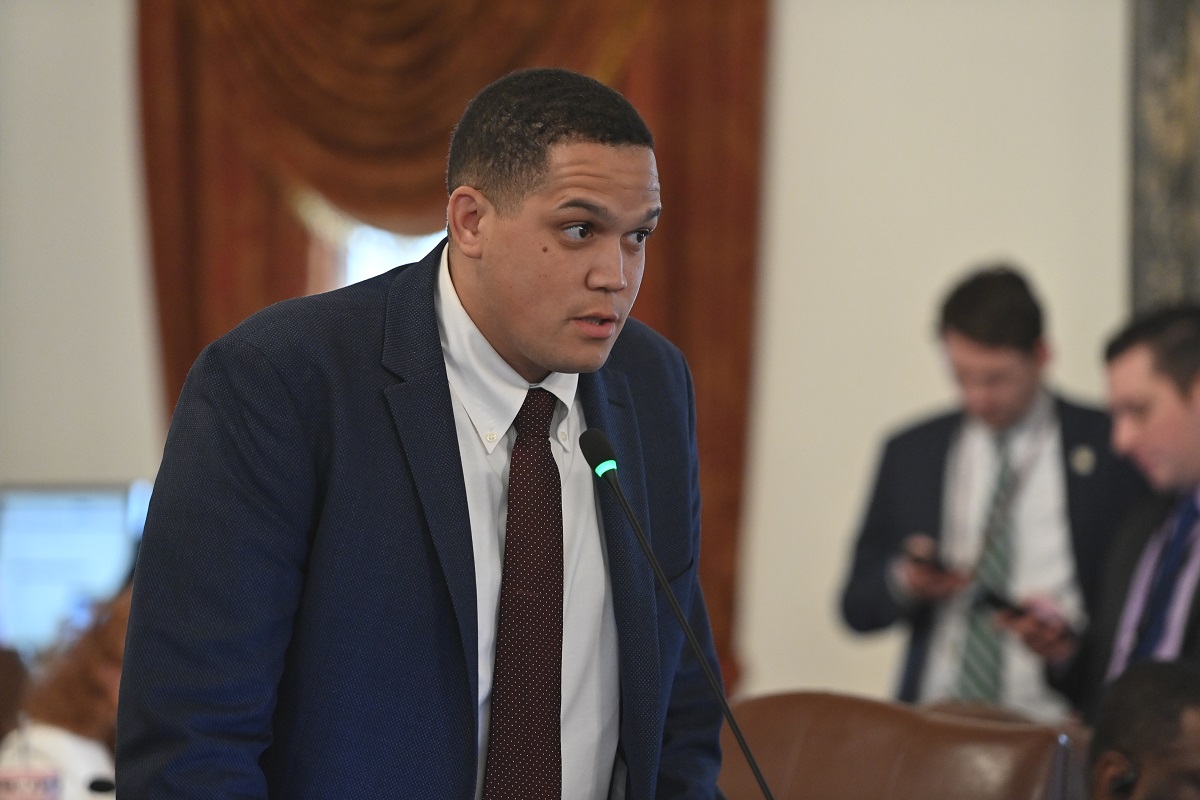 SPRINGFIELD — A measure championed by State Senator Robert Peters aims to shed light on the use of restrictive housing, requiring the Illinois Department of Corrections to collect and publicly share data on how often and why people are placed in solitary confinement.
SPRINGFIELD — A measure championed by State Senator Robert Peters aims to shed light on the use of restrictive housing, requiring the Illinois Department of Corrections to collect and publicly share data on how often and why people are placed in solitary confinement.
“Transparency is the foundation of accountability,” said Peters (D-Chicago). “By becoming more informed on how restrictive housing is used, we can ensure the system treats individuals fairly and humanely while holding our institutions to the highest standard of oversight.”
“Restrictive housing” is another phrase for solitary confinement – a form of housing that separates an individual in custody from the general population. The bill responds to growing concerns about the lack of publicly available data on solitary confinement practices in state facilities. Recent surveys conducted by the John Howard Association found that 42% of incarcerated individuals reported spending excess time in their cells, often not meeting the daily required minimum of two hours outside their sleeping area.
Read more: Peters measure to increase transparency in solitary confinement practices passes Senate
- Details
- Category: Senator Robert Peters News
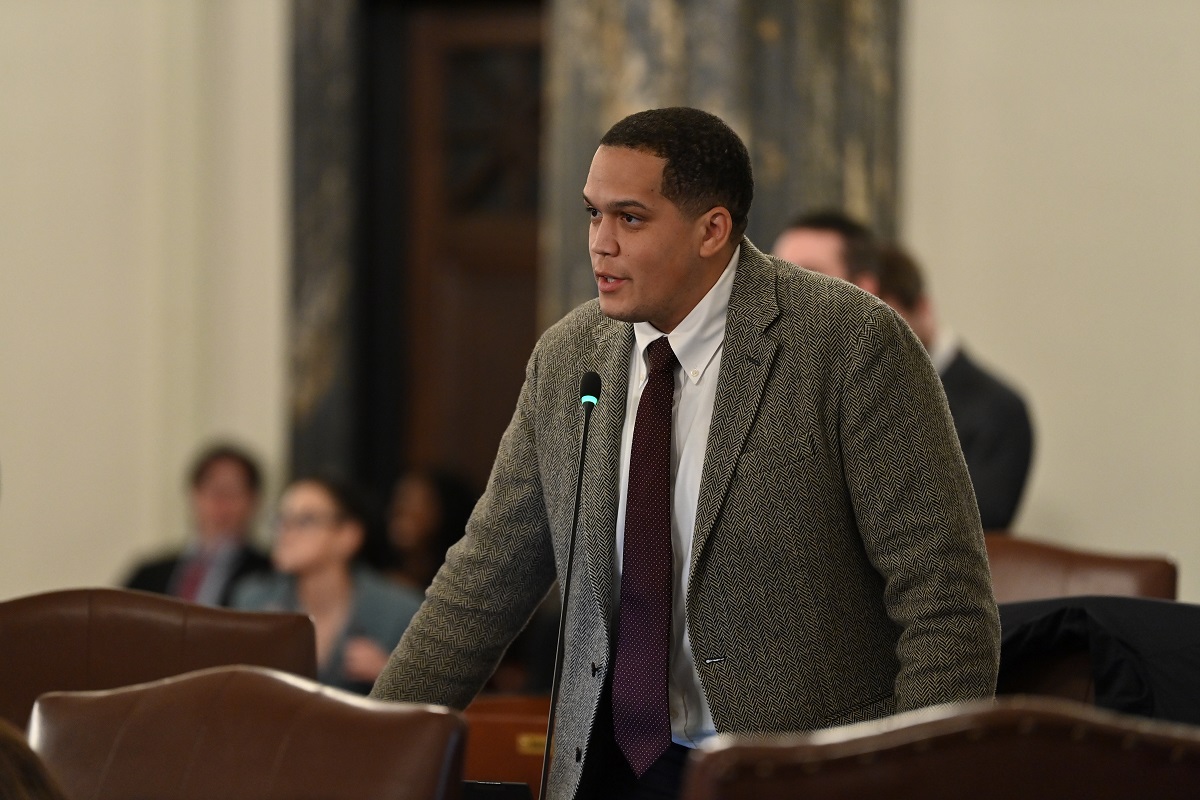 SPRINGFIELD — To support the preservation of Promontory Point, a historic landmark in Burnham Park, State Senator Robert Peters passed a resolution which aims to restore and protect the Point’s historic limestone retaining wall while ensuring public access and ecological sustainability.
SPRINGFIELD — To support the preservation of Promontory Point, a historic landmark in Burnham Park, State Senator Robert Peters passed a resolution which aims to restore and protect the Point’s historic limestone retaining wall while ensuring public access and ecological sustainability.
“Promontory Point is a valued piece of Chicago’s history and an important public space for residents and visitors alike,” said Peters (D-Chicago). “This resolution reflects our commitment to preserving its character while addressing shoreline erosion in a way that respects the community’s voice.”
Promontory Point is a 40-acre, man-made peninsula located at the south end of Burnham Park. Listed on the National Register of Historic Places in 2018 and designated a Chicago landmark in 2023, the Point has long been at the center of preservation conversations. A 2002 proposal from the city of Chicago and the Chicago Park District sought to replace its historic limestone components with concrete and stone, sparking community opposition.
- Details
- Category: Senator Robert Peters News
SPRINGFIELD – Illinois workers now have the ability to see if they are owed unpaid wages through the I-CASH website, thanks to advocacy from State Senator Robert Peters and Treasurer Michael Frerichs.
“Let’s be clear: Wage theft is theft. It’s in fact the leading form of theft,” said Peters (D-Chicago). “People deserve as much time as possible to recover their unpaid wages.”
The Illinois Department of Labor recovers back wages when it finds an employer has underpaid workers in violation of state law. Unfortunately for workers, wage theft investigations can take significant amounts of time. Illinois workers can now search the I-CASH website to see if unpaid wages and penalties pursued and collected by the Illinois Department of Labor are waiting for them to claim.
Read more: More people to receive unpaid wages, thanks to Peters
- Details
- Category: Senator Robert Peters News
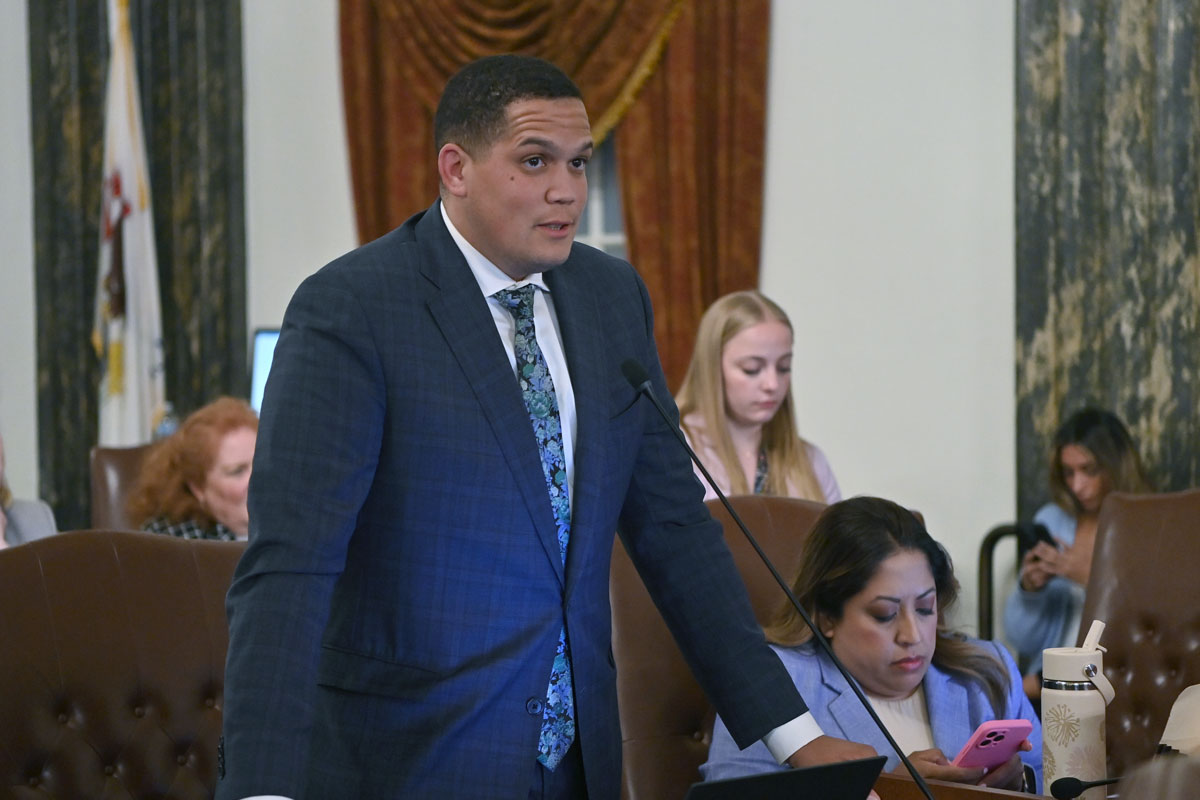
SPRINGFIELD – State Senator Robert Peters’ legislation to expand assistance under the Crime Victims Compensation Program was signed into law on Friday.
“Exposure to traumatic events can have lasting impacts on an individual’s well-being,” said Peters (D-Chicago). “It is important for our laws to acknowledge all those who should be considered under this program and to take into account the diverse range of experiences and challenges someone may face.”
The losses suffered by victims of crime are diverse and can extend beyond the immediate incident, resulting in financial losses, disruptions to daily routines and employment, and other long-term physical and emotional consequences affecting an individual’s quality of life.
Read more: Peters’ law improves Crime Victims Compensation Program
- Details
- Category: Senator Robert Peters News
 SPRINGFIELD — For the first time in nearly 75 years, Illinois will see strengthened protections for youth in the workforce thanks to State Senator Robert Peters.
SPRINGFIELD — For the first time in nearly 75 years, Illinois will see strengthened protections for youth in the workforce thanks to State Senator Robert Peters.
“Young people in the current workforce encounter challenges unique to their generation,” said Peters (D-Chicago). “These updates to our child labor laws are needed to safeguard their rights and well-being, ensuring our youngest residents have a healthy balance between their work responsibilities, schooling, extracurricular activities and personal lives.”
With support from the AFL-CIO and the Illinois Department of Labor, Peters spearheaded the overhaul of the Illinois Child Labor Law to provide more protections for youth in the workforce by addressing working conditions, age requirements and sectors prone to exploitation.
- Details
- Category: Senator Robert Peters News
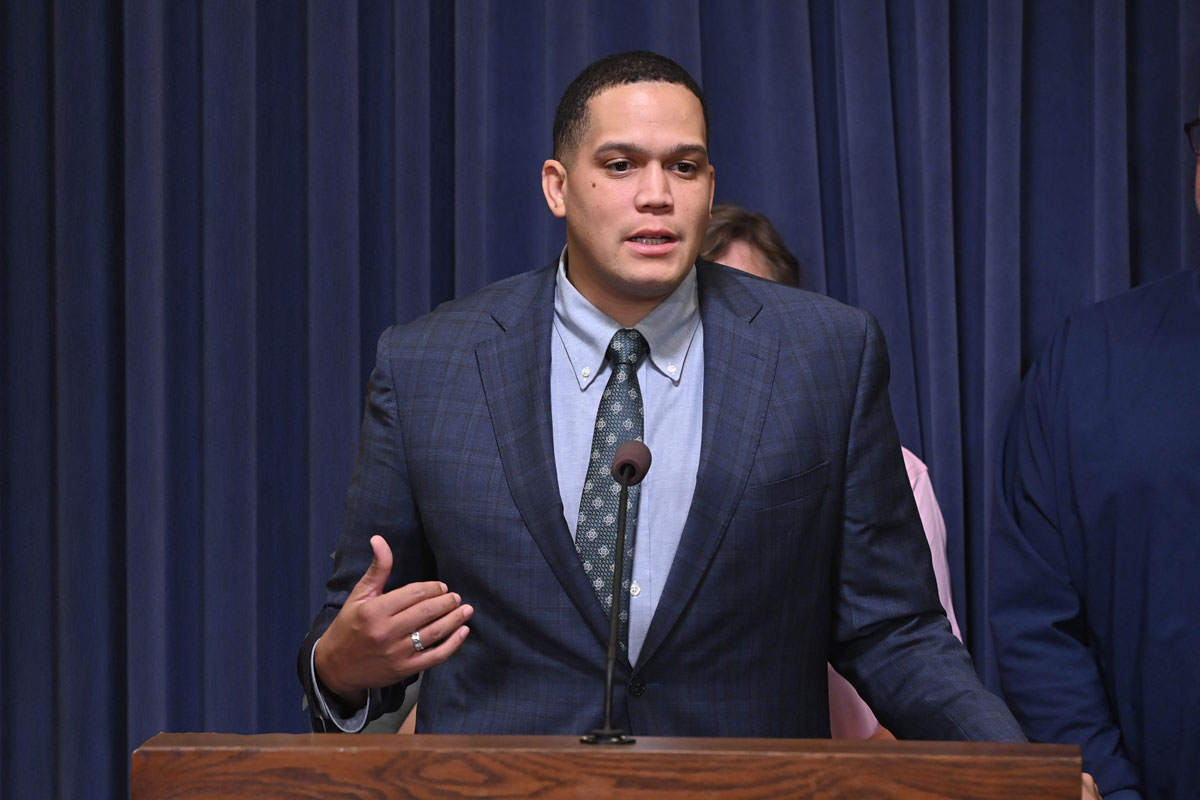
CHICAGO — State Senator Robert Peters (D-Chicago), Senate Chair of the Illinois Legislative Black Caucus, issued the following statement in response to the body camera footage which led to the indictment of the ex-deputy who shot and killed Sonya Massey in her home:
“This video is sickening. It is despicable and disgusting to see such brutal violence toward an innocent Black woman. How did this person ever become a law enforcement officer?
“This is why we fought for increased transparency.
“This is why we fought for body camera requirements.
“This is why we fought to end cash bail to keep dangerous people detained.
“But arresting and detaining the perpetrator isn’t the end. Justice demands answers and accountability. We need to know how and why someone capable of such a horrible act was given a badge and a gun in the first place.
“The repeated murders of unarmed Black people across the country is sickening and emotionally traumatizing. Sonya Massey is dead because she called 911 for help. Our communities deserve better. We stand with the Springfield community and the Massey family.
“May Sonya Massey’s memory be a blessing and bring comfort to those who knew her.”
More Articles …
- Healthcare Protection Act signed into law thanks to Peters
- Peters' legislation to streamline record-clearing for youth heads to governor
- Peters at the forefront of efforts to strengthen health care access and consumer protections
- Peters commemorates historic milestone with first-ever Tradeswomen Take Over Springfield
Page 3 of 23

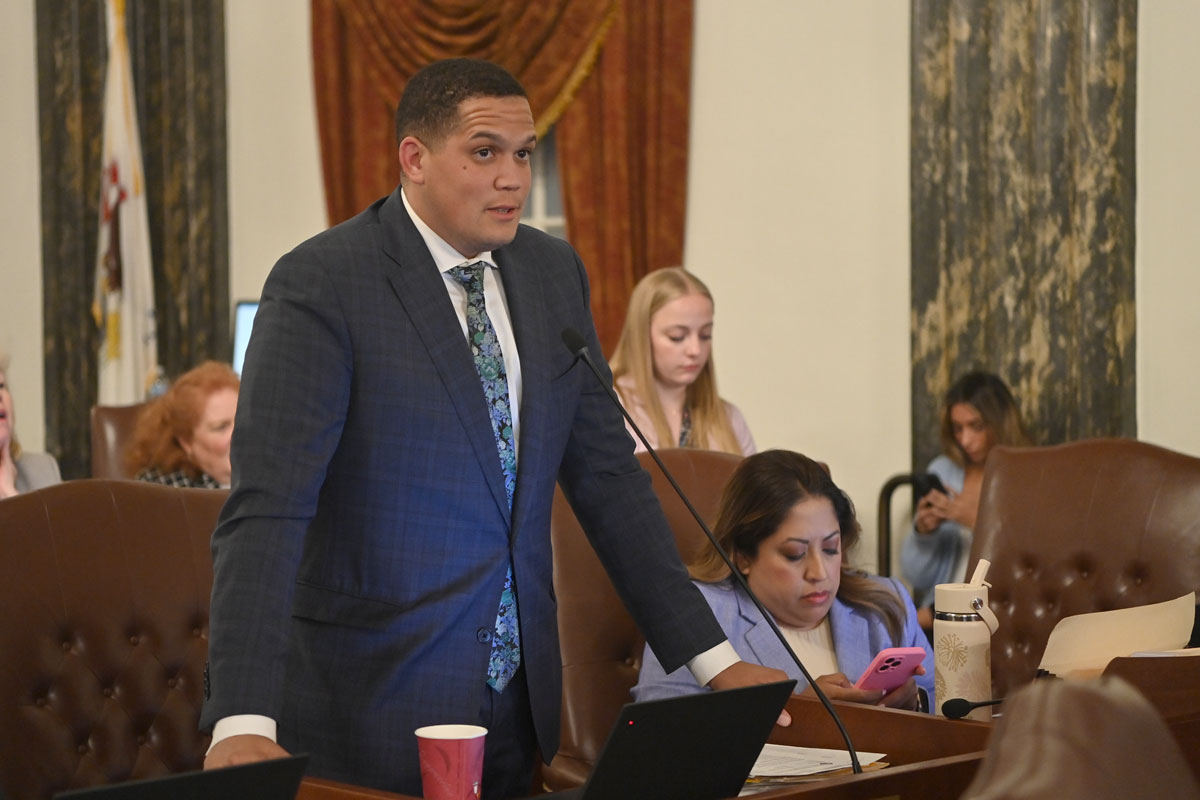












 © 2026 Illinois Senate Democratic Caucus
© 2026 Illinois Senate Democratic Caucus